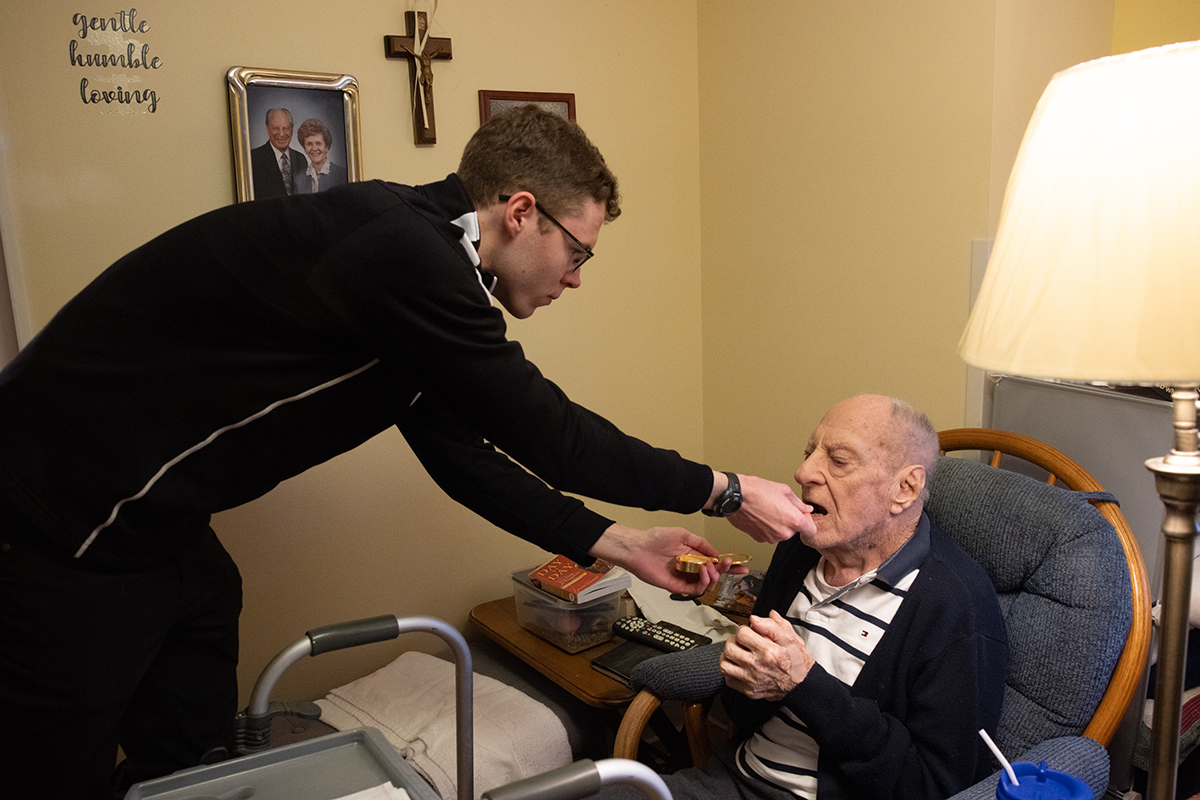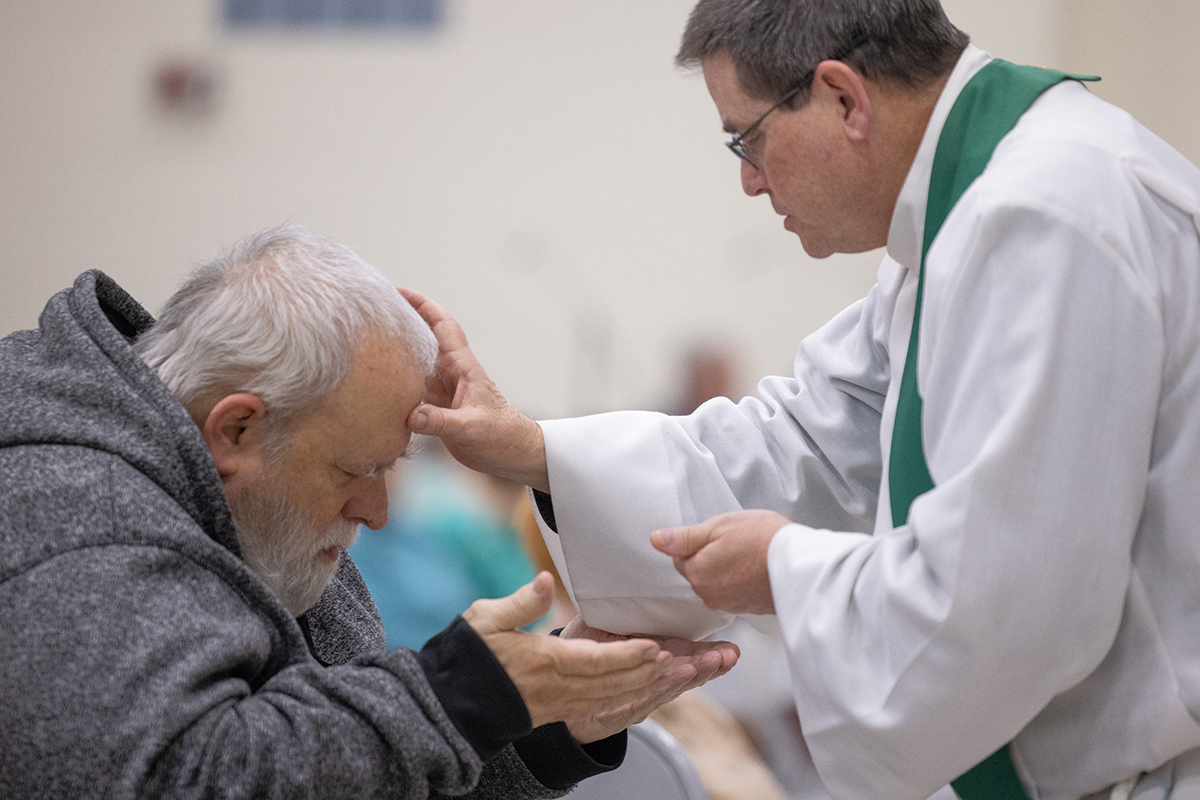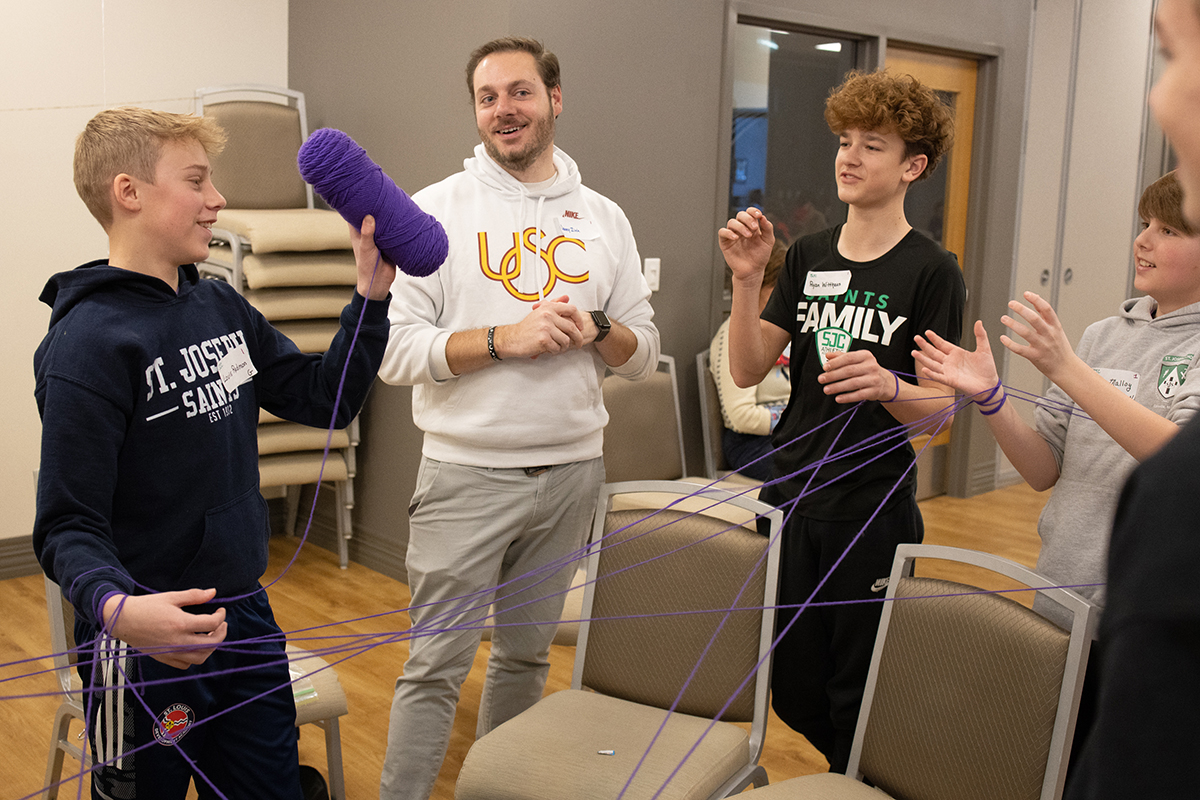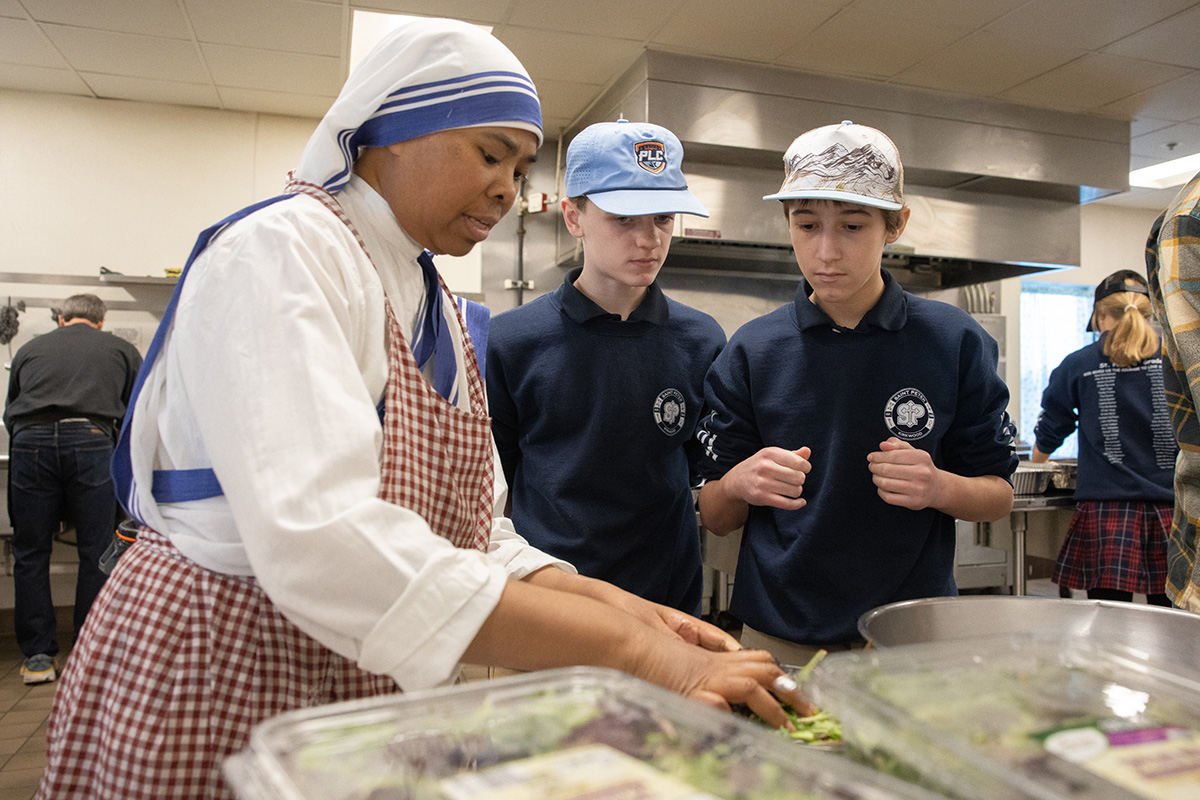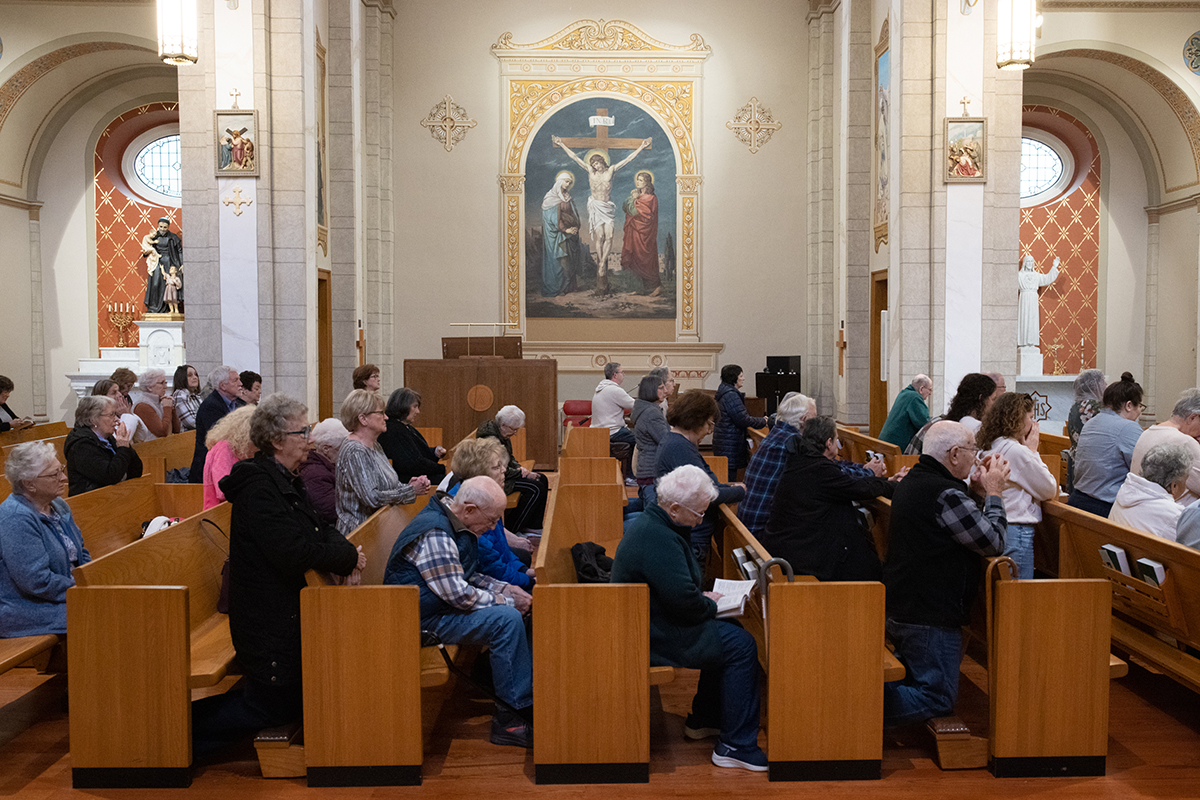Former prisoner develops deeper relationship with the Lord through Catholic prison ministry
Former prisoner finds deeper connection with God through the faces of prison ministry volunteers

When Chris Santillan went to prison, his mother told him that no matter what, God would be with him.
Santillan was sentenced to life in prison without parole in 1994 for murdering his childhood friend, Vinay Singh, in 1992. Santillan was 17 at the time of the killing. In February, he was released after serving 28 years. His release stemmed from a 2012 U.S Supreme Court decision that banned mandatory life without parole sentences for juveniles.
Before his sentencing, Betty Santillan told her son: “do something of yourself. I told him he’s not alone — God is always with you.”
In prison, he turned to the Catholic Church, in which he was baptized and raised. Santillan came to know several Catholics who have for years volunteered with prison ministry at the Potosi Correctional Center, including Auxiliary Bishop Mark Rivituso and Deacon Andy Daus, a longtime volunteer with the Criminal Justice Ministry.
As a teen, Santillan attended Mass but wasn’t serious about his faith. He said that what he experienced in prison drew him more deeply into the Church, helping to form him into the man he is today.
Prison ministry volunteers chipped away at his stubbornness, he said. “They say that when somebody tells you about themselves, believe them. And they kept on telling me about themselves — come to find out what they were telling me is the story of Jesus.”
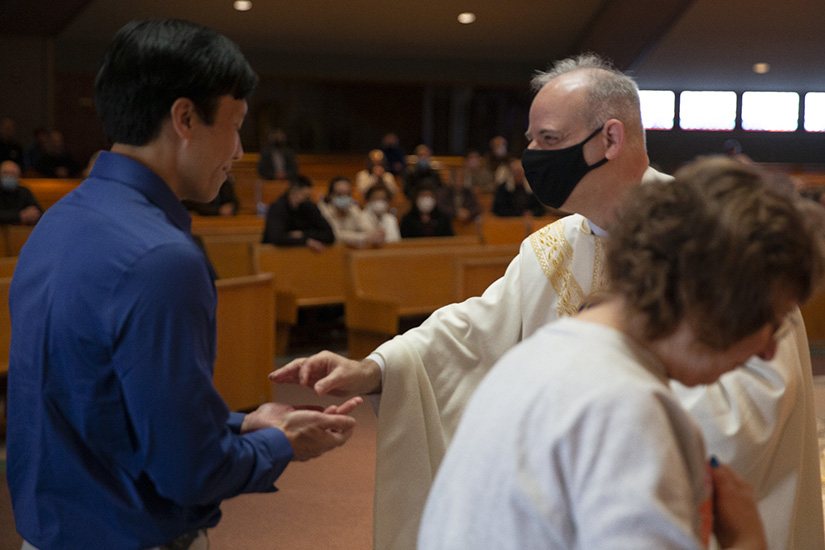
Volunteers who assist with Kairos Inside (a multi-denominational retreat for prisoners), music ministry and members of the ACTS retreat team, along with representatives from Criminal Justice Ministry, attended a Mass Feb. 19 at St. Margaret Mary Alacoque Parish in Oakville to say goodbye to Santillan, who moved away from the area after his release.
Mary Miller, a member of St. Joseph Parish in Imperial who has been involved with prison ministry since the 1990s, volunteered alongside Santillan providing music for Masses and Communion services at the Potosi Correctional Center.
She described Santillan as a “second son” and underscored the importance of accompanying those who are imprisoned. “Right now I am thinking of the Bible passage where there’s 99 sheep and they go to get the one lost sheep,” Miller said. “I always think of that and praise God. That’s why we do it.”
Bishop Rivituso met Santillan five years ago when he began regularly visiting the correctional center. He relates prison ministry to the passage from Matthew 25, in which Jesus said, “you came to visit me when I was in prison,” later adding, “Amen, I say to you, whatever you did for one of these least brothers of mine, you did for me.”
“Jesus called us to encounter Him in so many different ways, and this is one of those ways,” Bishop Rivituso said. “We should be mindful as a Church that we can’t neglect those who are incarcerated, especially their spiritual needs. They need to come to know the Lord.”

Bishop Rivituso said the visits are more than just celebrating Mass every once in a while. The ministry fits well with what Pope Francis has written on the “art of accompaniment” in his apostolic exhortation, “Evangelii Gaudium,” on proclaiming the Gospel in the world.
Simply put, it’s an act of evangelization, Bishop Rivituso said.
“We’re here to be the face of Christ for them, but also we find the face of Jesus in those we serve,” he said. “We’re called to accompany them, walking with them in their anxieties, fears and challenges.”
Joe Tracy was an inmate at Potosi for 14 years and was housed in the same wing as Santillan. He came to the Mass at St. Margaret Mary Alacoque to wish him well. Tracy, a member of Most Holy Trinity Parish in St. Louis, said he’s remained in touch with prison ministry volunteers since being released from prison seven years ago and is grateful for their relationships.

“They all wanted to know where I’m at and how I’m doing, and I’ve wanted to know how their health was, too,” he said. “I screwed up my life and I paid for it, and I ain’t going backwards.”
Prison ministry is not a “Holy Spirit-free zone,” said Tom Cummins, a member of Mary Queen of Peace Parish in Webster Groves, who has volunteered at Potosi for more than 20 years.
“These men are in a landscape with no milestones, no markers whatsoever,” he said. “We need to plant a few out there, and the Catholic Church is one of these things the men gravitate toward. They like the ritual. They like the priests who come in. What the Catholic Church stands for — the men get that. It’s stable: Every time you look up, that beacon is in the same spot.”
Santillan said that through the prison ministry, he discovered that God was always present. “I didn’t believe in God for a long time,” he said. “If You were real, then I wouldn’t be here. Or if You were real, then You’d help me out. Or if You were real, I wouldn’t be so unloved and so unworthy. Despite all of my protestations … He was always there, and He always will be.”
>> Criminal Justice Ministry
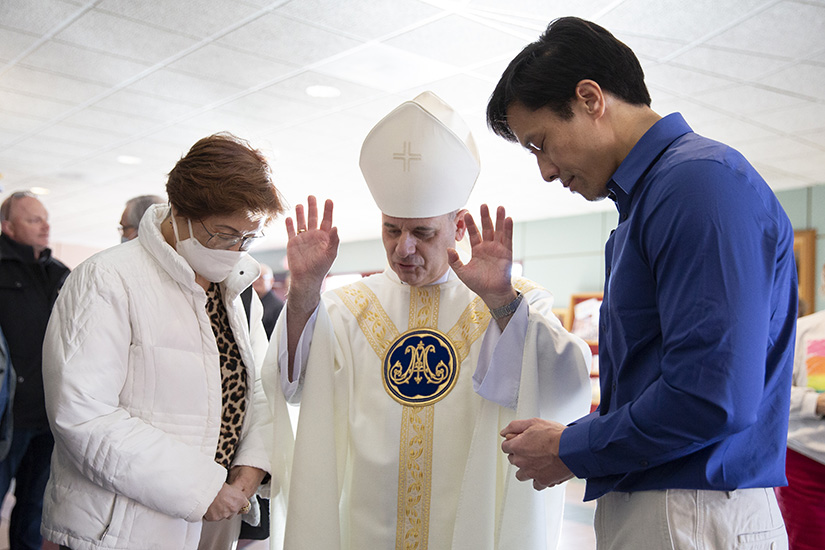
The Criminal Justice Ministry’s mission is to improve communities by supporting and empowering people impacted by incarceration. Its re-entry housing programs provide yearlong supportive housing and wraparound services.
A volunteer network provides services to people who are currently incarcerated. Direct services provide items to address immediate needs for those who have been released from jail/prison. Another program helps housing clients learn business skills and create pet-friendly items to sell at local markets and fairs. And an advocacy program offers presentations to groups and contacts with legislators.
CJM receives funding from the Annual Catholic Appeal. For more information on the agency and its programs, visit www.cjmstlouis.org.
>> Restorative justice
The U.S. bishops have consistently called for restorative justice. In Responsibility, Rehabilitation, and Restoration: A Catholic Perspective on Crime and Criminal Justice, the bishops wrote, “Just as God never abandons us, so too we must be in covenant with one another. We are all sinners, and our response to sin and failure should not be abandonment and despair, but rather justice, contrition, reparation, and return or reintegration of all into the community.”
The bishops have repeatedly voiced support for legislation that would make improvements to the U.S. criminal justice system, including amending the federal criminal code to establish partnerships between prisons and faith- or community-based nonprofit organizations to conduct activities to reduce recidivism. The bishops also have voiced support for the Smarter Sentencing Act, which would make reforms to mandatory minimum sentences by expanding current judicial sentencing options related to nonviolent drug offenses.
It’s our duty to do everything possible to offer to those who commit crimes a way of redeeming themselves and making a positive return to society, St. John Paul II said in 2000.
“We are still a long way from the time when our conscience can be certain of having done everything possible to prevent crime and to control it effectively so that it no longer does harm and, at the same time, to offer to those who commit crimes a way of redeeming themselves and making a positive return to society,” he said. “If all those in some way involved in the problem tried to … develop this line of thought, perhaps humanity as a whole could take a great step forward in creating a more serene and peaceful society.”
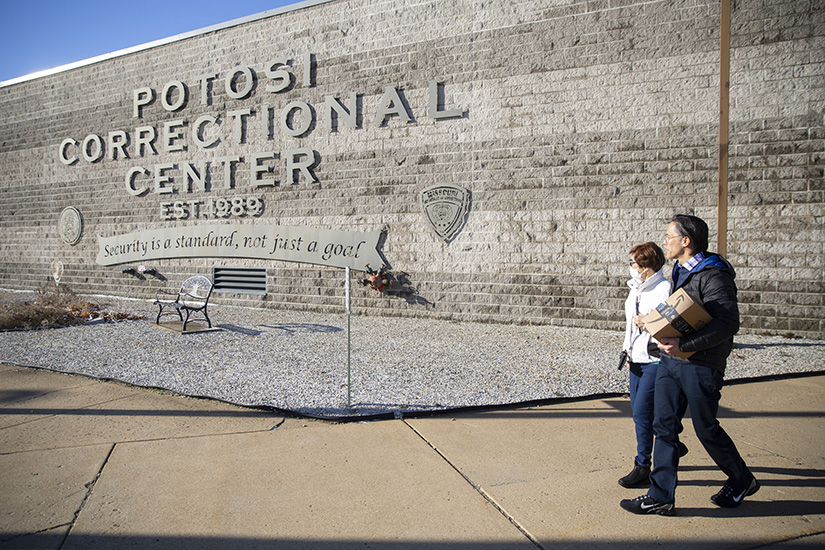
Chris Santillan, left, who had been released from Potosi Correctional Center the day prior, played music for Mass with Mary and Tim Miller Feb. 19 at St. Margaret Mary Alacoque … Former prisoner develops deeper relationship with the Lord through Catholic prison ministry
Subscribe to Read All St. Louis Review Stories
All readers receive 5 stories to read free per month. After that, readers will need to be logged in.
If you are currently receive the St. Louis Review at your home or office, please send your name and address (and subscriber id if you know it) to subscriptions@stlouisreview.com to get your login information.
If you are not currently a subscriber to the St. Louis Review, please contact subscriptions@stlouisreview.com for information on how to subscribe.

